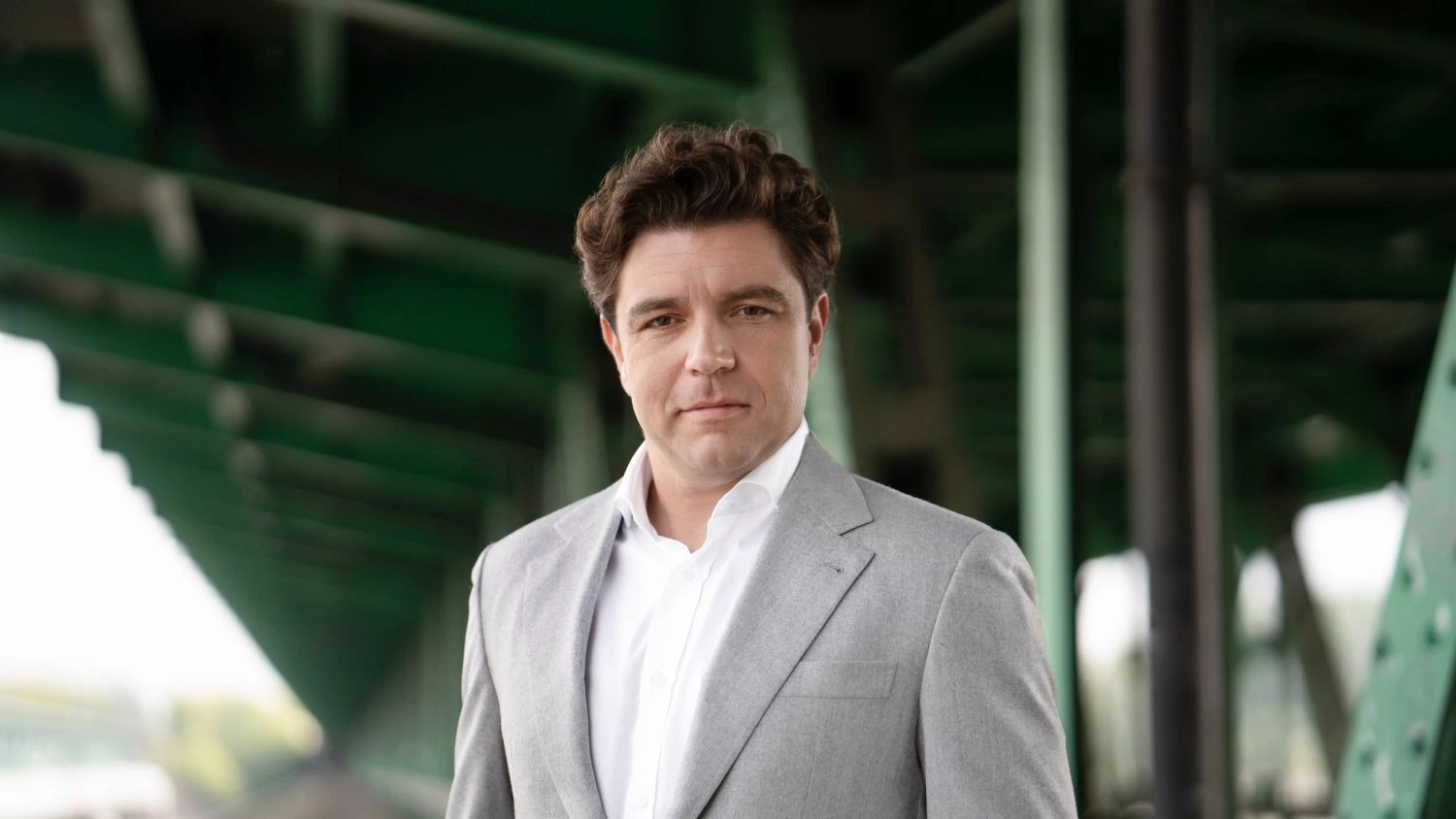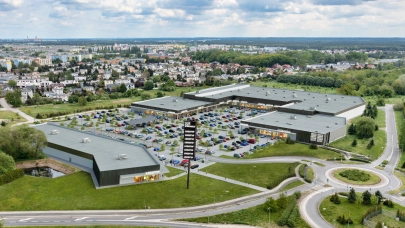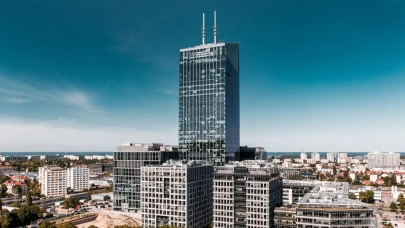
Łukasz Jachna, CIO of LemonTree, has talked to Property Forum about the current trends in the Polish warehouse market, the speed of implementation of ESG principles and designing logistic parks as mixed-use projects.
Together with Bartłomiej and Maciej Krawiecki, you have gained experience in the warehouse developer market over the years. Please tell us why you have decided to 'do it alone’?
As you rightly say, we are experienced players in the warehouse market. But the LemonTree team is not just these three people - it is a team of several dozen managers and specialists who have worked for some of the biggest players in the industry. These people are our greatest asset - with such a strong and experienced team, we are constantly focused on action and can execute our strategy efficiently.
We believe that thanks to the rapid organic growth in recent years, our warehouse market has already reached a certain maturity. The COVID pandemic and the resulting change in consumer behaviour have accelerated the market's growth beyond expectations, leading to a significant developmental leap. We felt that this moment of transition - from development to maturity - was an opportune time to enter the market with a new, well-thought-out concept.
Market maturity forces developers to segment themselves, the need to specialise and exploit market niches. Thanks to the experience gained from working with various entities, we can identify what product is and will be sought after on the market, which attracts the attention of investment funds. We are also observing significant changes in the global macroeconomic environment, which cannot be ignored. These include higher interest rates and inflation, which have increased costs for many tenants, and the war in Ukraine, which has driven up energy and raw material prices. Additionally, new legal requirements of the European Union - taxonomy and the need to implement sustainable development principles. Considering all this, we think it is worth redefining the market a bit and approaching it much more fundamentally. In our view, a completely new business concept is needed that clearly responds to these new demands. LemonTree is precisely intended to respond to new market realities, current needs, and future needs, as the warehouse space market has been an arena of continuous dynamic change for several years. We also want to offer projects that will be cyclical and, let’s say, “market non-dependant”. Together with Deloitte, we have been working on a comprehensive sustainability strategy, because it is the foundation of our business. This involves designing buildings with respect for the natural environment, emphasizing biodiversity, implementing the circular economy concept, and finding solutions to achieve real savings in operating costs.

Łukasz Jachna
CIO
LemonTree
There is no denying that the market moment is difficult. Induced by the energy crisis, last year's rent increases in some locations ranged from a dozen to even several tens of per cent. There is also lower interest from investors, waiting for interest rates in the Eurozone to be lowered...
As far as the fundamentals of the market are concerned, we still see them in very positive colours. The aforementioned e-commerce sector will continue to develop dynamically. By 2027, the volume of online purchases is expected to increase by another 50 per cent. Poland's very favourable central location in Europe makes our country a strategic location for large projects and investments, and this remains unchanged. In our medium and long-term assessment, the market fundamentals will remain very encouraging, but sectoral knowledge and experience, as well as effective implementation, are key.
How do you assess the current willingness of banks to finance new warehouse investments in Poland?
We focus on the six largest and most popular warehouse markets in Poland. Banks financing investments know that a good location will always defend itself, both for the current mix of tenants and future ones. We show the banks that the locations we choose have potential future alternative uses. Today it's warehousing, but in a few years, it could be light manufacturing or something completely different because facilities close to city centres can be converted into practically anything.
Another important aspect is, of course, the aforementioned taxonomy and the preparation of investments in line with the banks' requirements concerning “green financing,” which actually aligns with the market needs of potential tenants.
The only significant change we have seen in recent quarters is the slightly more conservative approach of financial institutions to speculative projects and the requirements of higher pre-lease before construction starts. In times of high financing costs, however, this is perfectly understandable behaviour.
You have recently joined the United Nations Global Compact programme under the aegis of the United Nations. Please tell us why you decided to make this move? What does membership of this initiative give you and what does it oblige you to do?
We have joined and appreciate being accepted because this is not an institution that operates on the basis of a mere declaration of accession. We have been accepted as a member of a group of international companies that share a common goal - to activate the international community, companies, and their stakeholders to act responsibly and focus on the Global Compact's Ten Principles on human rights, labour, environment, and anti-corruption. Why have we joined the UN Global Compact? Firstly, we want to exchange information and experiences with players from other markets and industries. We operate in the real estate sector, but there are some solutions that can be taken from other segments of the economy and implemented in our own ‘backyard’. We also recognised that by working with the Sustainability team at Deloitte and partnering with the United Nations Global Compact, we would be able to create and implement a tailored sustainability strategy and gain knowledge in this area. Continuous education broadens our horizons and helps us share the knowledge we gain with our business partners. In January, as part of our cooperation with the Polish office of the United Nations Global Compact, we also joined the Climate Positive programme, which implements the climate goals set by the UN. As we are well aware, the warehousing market is the interface between the real estate industry and transport, the two most carbon-intensive segments of the economy. This is why we feel obliged to follow the recommendations discussed within the Climate Positive program, to monitor our impact on the environment, and to test innovative solutions aimed at reducing our carbon footprint, water footprint and supporting biodiversity.
Booster, your new investment in Zabrze, will be characterised by, among other things, specially arranged outdoor areas, open to the local community. Up to now, this type of city-building activity has been reserved for office or retail projects. Can a warehouse park be a living urban fabric at all?
Firstly, we are talking about a relatively large site, as Booster is being built on as much as 25 hectares. On such a large plot, it is easier to design and already at the conceptual stage, it is possible to prepare suitable zones for mixed-use. At the same time, in our opinion, it is a critical location in terms of Silesia itself - the plot is located in the heart of the Upper Silesian agglomeration, next to the Drogowa Trasa Średnicowa road, which connects it. We have excellent access to public transport - a tram stop is right next door. The type of tenants we are targeting are companies focused on advanced logistics and business operations, which means the office component must be higher than with standard facilities. There are simply more people working in such projects, and an important part of our strategy is to engage in dialogue with the local community and offer surrounding residents a space that they can also use. This is why people are at the heart of the Booster Zabrze project. With employees as well as local residents in mind, we are planning a special gastronomic, artwork and relaxation zone.
Let's return to the issue of sustainability for a moment. ESG is a hot topic in logistics real estate in general - sustainability principles are being implemented faster here than in other market sectors. Why do you think this is happening? Ease of implementation, high environmental awareness among tenants and investors, or some other reason?
In my opinion, it is due to the speed of project implementation and the fast pace of this market. Logistics and warehouse space are critical resources for our tenants, without which a company cannot function. Warehouse developers are more willing to innovate because they simply build more often and faster than their office or retail counterparts. Paradoxically, the warehouse space in Poland is among the most modern in Europe because it is relatively young.
The market has existed for 15-20 years, so we hardly have warehouses of the 1970s or older, which would no longer meet any standards today. Looking at our warehouse stock, we have absolutely nothing to be ashamed of in terms of the solutions and innovations used. We all work with international contractors who share experiences across branches operating in different countries.
As I have already mentioned, transparency and open dialogue is something to work on. We, as LemonTree, do not hide our knowledge - we want to share it and communicate with the market. It is in our interest, as well as that of the market as a whole, to communicate about new technologies, because this strengthens action for people and the planet. This will enable our warehouse and logistics market to remain competitive in the long term. We have foundations that give us an advantage, such as a central location and a competitive workforce, but this state may not last forever.
Are you planning any new investments in the next 24 months that you can already boast about?
One of the interesting projects that we can already say something about at the moment is the project in Szczecin, which we will be launching in the next few weeks. You will see a whole range of unique solutions there - in line with our principle of total transparency, we will be communicating about this investment very soon.



